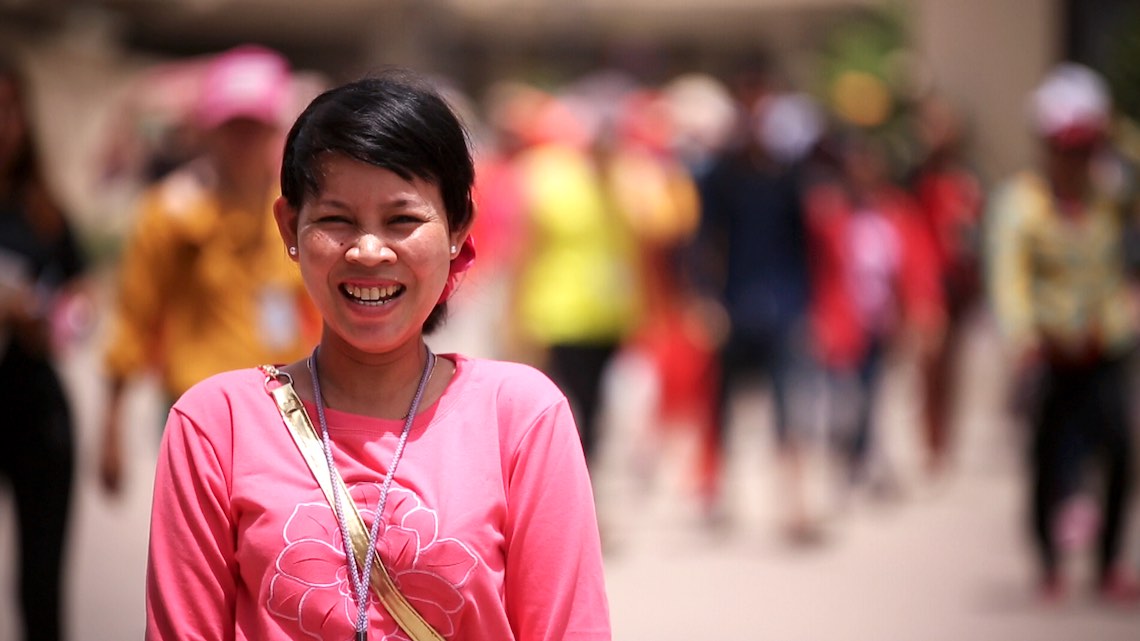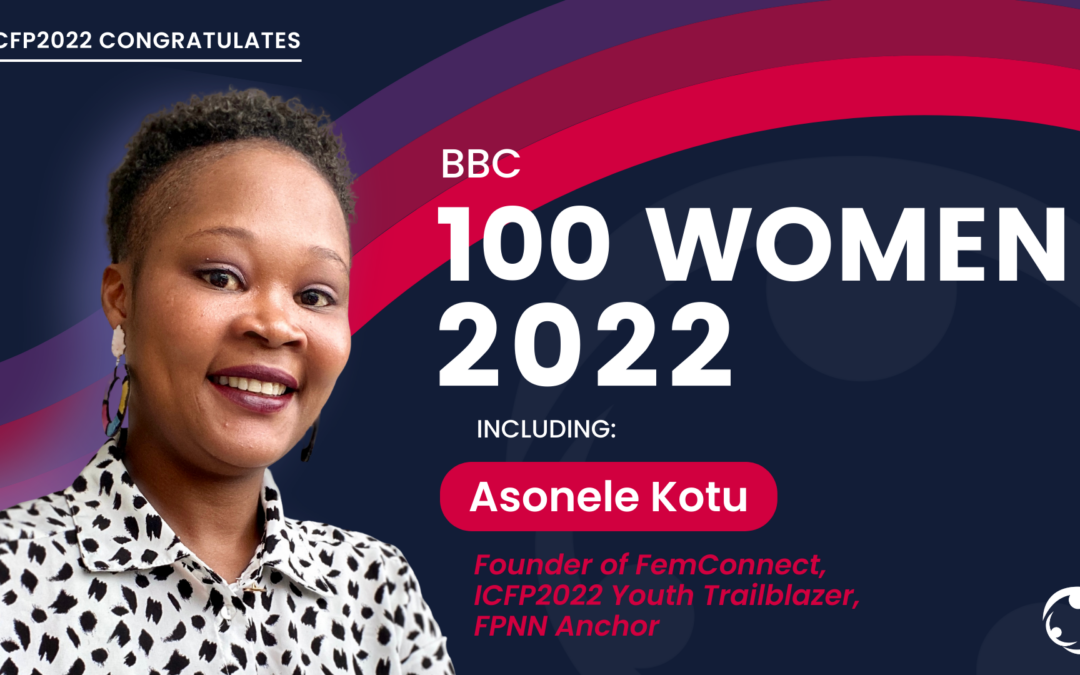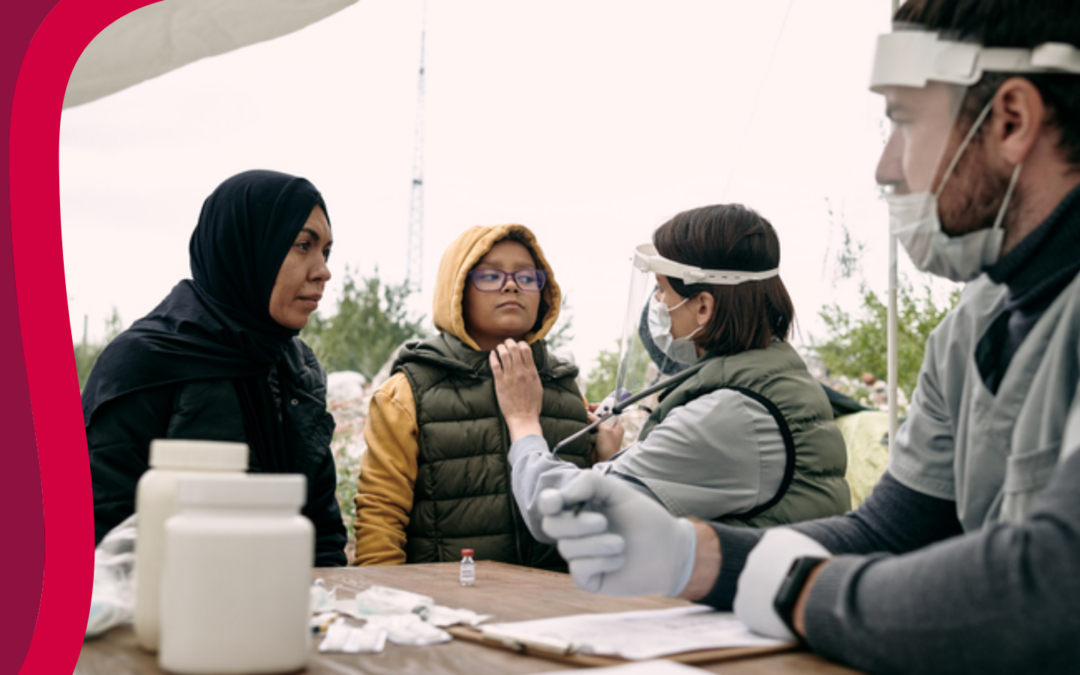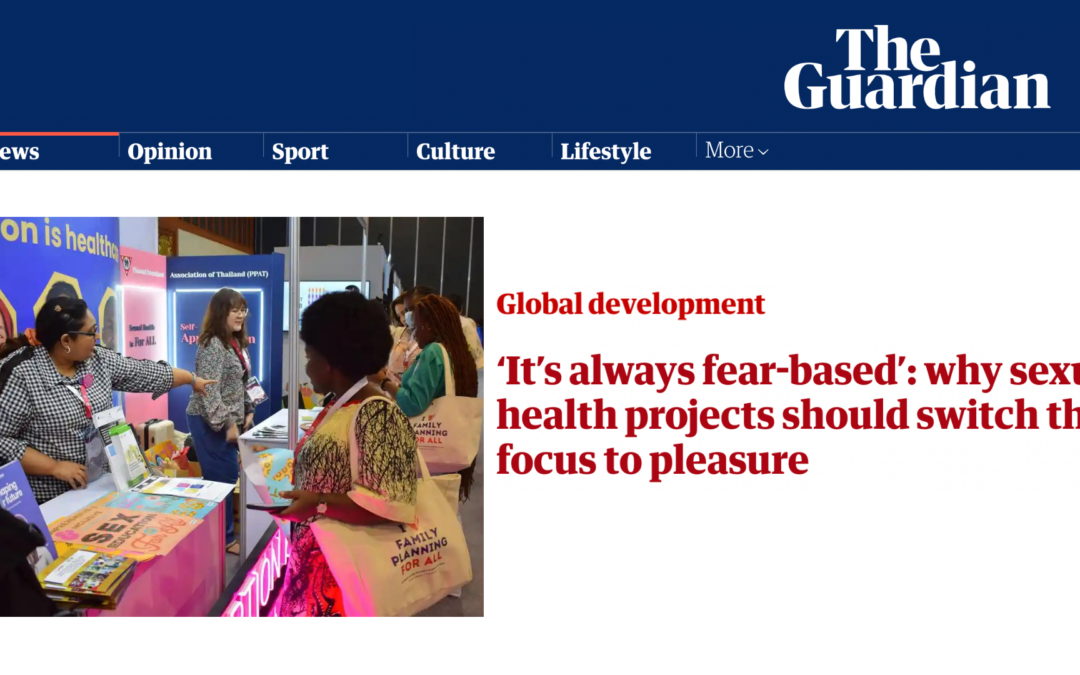Written by CARE
This article originally appeared on Girls’ Globe. Reposted with permission.
This is the third blog in a 4-part series sharing personal family planning stories from around the world – presented by CARE and Girls’ Globe in the lead up to the 2018 International Conference on Family Planning. Catch up on the whole series with stories from Hawa, Parmila, and Olive.
Oun Srey Leak, a 26-year-old mother of one, navigates her way to work on a crowded street in Phnom Penh, Cambodia. She has worked in the Gladpeer garment factory for five years.
The garment industry is a huge part of Cambodia’s economy, employing over 700,000 workers. About 90% of these workers are women.
Srey Leak, like many of her colleagues, moved to Phnom Penh from a less populous area of Cambodia in search of job opportunities. She met her husband and shortly after became pregnant with their daughter.

Photo by GMB Films
“After I got married, I heard using contraception could stop us from being able to have children in the future. So, that’s why I decided to have a child soon after I got married. Two months after the wedding, I got pregnant,” Srey Leak explained.
Although half of female garment workers report being sexually active, less than a third of them use modern contraceptives.
Just as soon as Srey Leak became a new mom, she was faced with the demand to return to the garment factory. “After the birth, I needed to get back to work. So, I took my daughter to my mother back in the province. I am now far away from my child because I don’t have time to take care of her.”
Srey Leak’s story is not atypical. Most Cambodian garment factories operate six days a week, eight hours a day, and workers are often paid based on the outputs they produce, rather than the time they put in. Taking time off to go to the doctor may cost them more income than they can afford to lose, and there are limited health providers and pharmacies operating on Sundays when the factories are closed.
For the past five years, CARE has been working in garment factories to help women like Srey Leak make healthy decisions. Chat! is a package of activities that reaches women inside factories, where they spend most of their time. The innovative package includes sessions providing information on various sexual and reproductive health topics.
Srey Leak welcomed the opportunity to take control of her health. “One day, CARE came to invite workers to join a short training. They showed me short films about understanding the different types of contraception, safe abortion, and the ways in which we can avoid unplanned pregnancies.”
The sessions are paired with videos that feature fictional characters, in which the women can relate to and identify real health challenges. There is also an app that provides interactive quizzes and activities that are tailored specifically for garment workers, to facilitate ongoing learning.
After she learnt about the various modern contraceptive methods available to her, Srey Leak decided to start using oral contraceptives.
“I now take the contraceptive pill every day. If I’d known about this method before, I could have used it before falling pregnant,” she shared. “For me, after I joined CARE’s training, it changed my life. Now I use contraception and I have a greater understanding. So, it means I can have enough money for my next child.”
Chat! is supported by the Australian government’s Partnering to Save Lives (PSL) initiative and the Cambodian Ministry of Health in an alliance to reduce maternal and newborn mortality in Cambodia. Workers who participated are twice as likely to use modern family planning methods and health services. Factory managers have reported increased productivity and reduced absenteeism within their workers.




